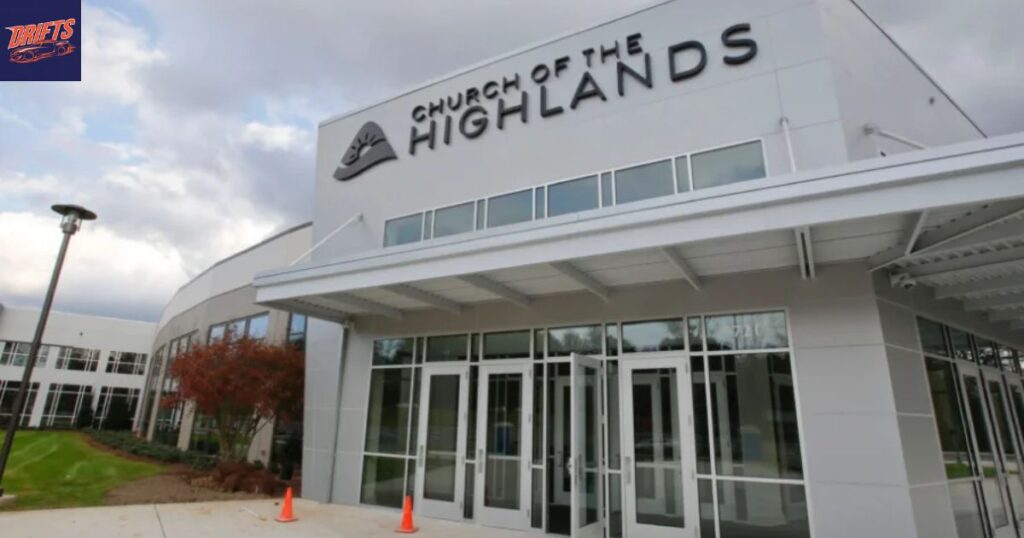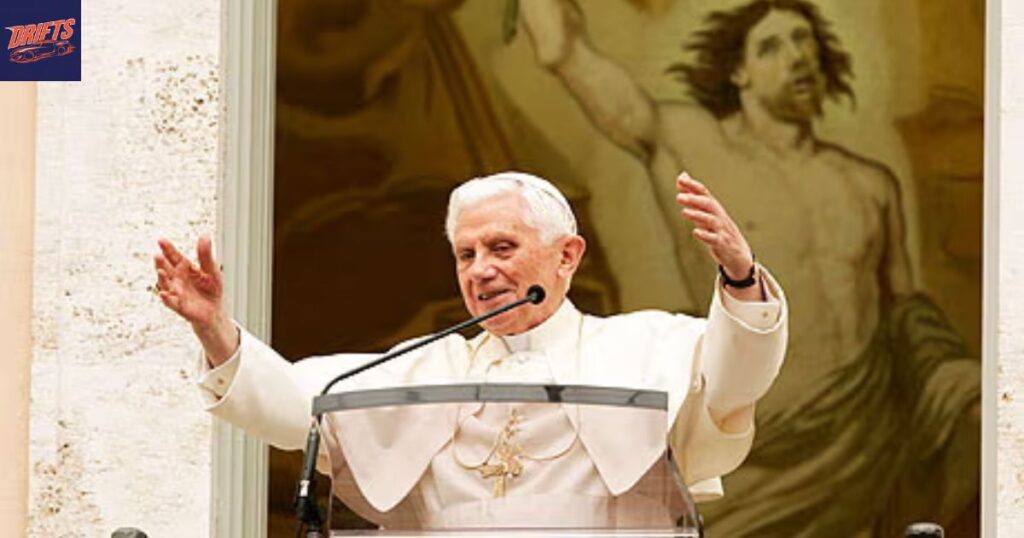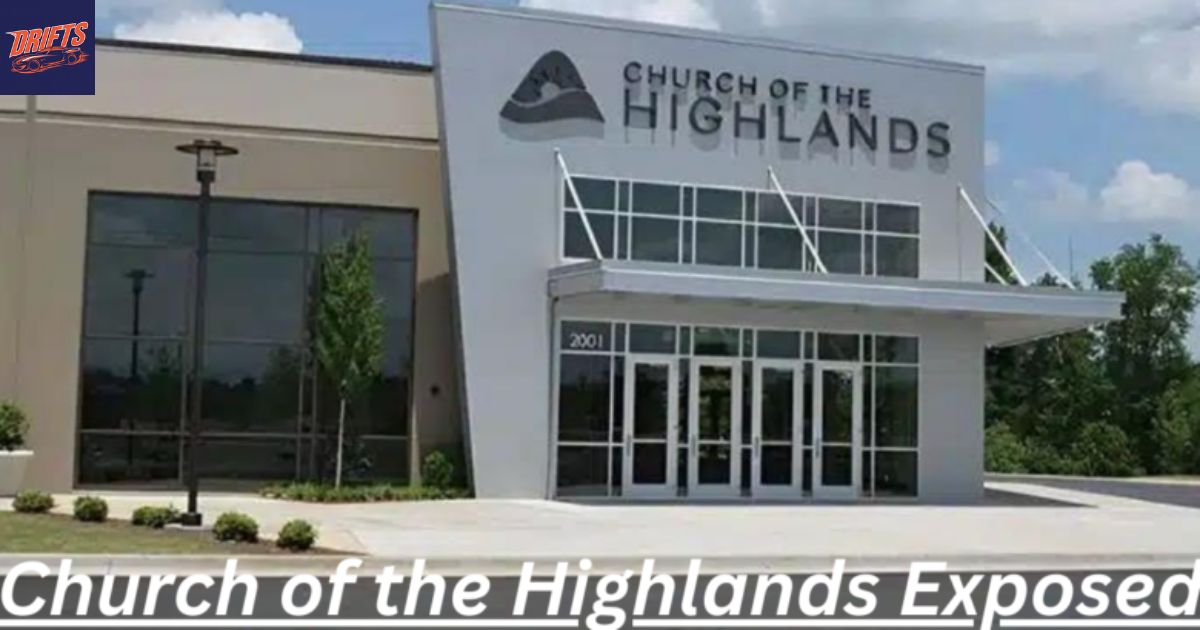The Church of the Highlands, a prominent megachurch in Alabama, faces scrutiny over its practices and beliefs. Critics raise concerns about LGBTQ+ inclusivity, financial transparency, and leadership style.
Despite its significant community outreach efforts, the church grapples with allegations of authoritarianism. The organization’s rapid growth and influence have sparked debates about its impact on local communities.
As controversies unfold, the Church of the Highlands attempts to address criticism through increased transparency. The ongoing dialogue highlights the complex relationship between large religious institutions and societal expectations.
Introduction
The Church of the Highlands, founded in 2001 by Chris Hodges, has grown to become one of the largest megachurches in the United States. With its main campus in Birmingham, Alabama, and numerous satellite locations across the state, the church has attracted a significant following and garnered attention for its rapid expansion and influence.
However, as with many prominent religious institutions, the Church of the Highlands has not been immune to controversy and criticism. This article aims to provide an in-depth examination of the various issues surrounding the church, its practices, and its impact on the community.
The Rise of the Church of the Highlands Exposed
The Church of the Highlands has experienced meteoric growth since its founding in 2001. Its rapid expansion across Alabama has made it one of the largest megachurches in the United States.
With increasing prominence came heightened scrutiny of the church’s practices and beliefs. Critics began to question its financial transparency and stance on social issues.
The church’s influence extended beyond religious circles into local communities and politics. This growing power sparked debates about the role of megachurches in modern society.
The Church’s Influence in Alabama
Since its inception, the Church of the Highlands has experienced exponential growth, becoming a major religious and cultural force in Alabama. With over 20 campuses spread across the state and an average weekly attendance exceeding 50,000 people, the church has established itself as a significant presence in the lives of many Alabamians.
The church’s influence extends beyond its physical locations, with a robust online presence and streaming services that reach viewers across the country and around the world. This digital outreach has further amplified the church’s message and expanded its follower base.
The Church of the Highlands has also made its mark through various community initiatives, including addiction recovery programs, prison ministries, and partnerships with local schools and organizations.
Read This Blog: Drawing Spiderman: A Journey into Artistic Expression
Controversies and Criticisms

The Church of the Highlands has faced scrutiny over its stance on LGBTQ+ issues. Critics argue that the church’s policies and teachings promote a non-inclusive environment.
Financial transparency has been another point of contention for the megachurch. Some have raised concerns about the lack of detailed financial disclosures and leadership compensation.
Allegations of authoritarian leadership have emerged from former members. These claims suggest a culture that may discourage dissent and critical thinking within the congregation.
LGBTQ+ Inclusivity Concerns
One of the most significant controversies surrounding the Church of the Highlands relates to its stance on LGBTQ+ issues. Critics have accused the church of promoting a non-inclusive environment for LGBTQ+ individuals and adhering to traditional, conservative views on sexuality and gender identity.
In 2020, the church faced backlash when it was revealed that Chris Hodges, the lead pastor, had liked several social media posts by Charlie Kirk, a conservative political activist known for his controversial statements on race and LGBTQ+ issues.
This incident led to the termination of the church’s partnerships with the Birmingham Board of Education and the Birmingham Housing Authority, which had allowed the church to provide services in local schools and public housing communities.
Financial Transparency Issues
As a large and influential organization, the Church of the Highlands has faced questions regarding its financial practices and transparency. Some critics have raised concerns about the church’s use of funds, particularly given its tax-exempt status as a religious institution.
One of the main points of contention is the lack of detailed financial disclosures available to the public. While the church provides some financial information on its website, critics argue that this information is insufficient and does not provide a comprehensive picture of the organization’s financial operations.
Questions have also been raised about the compensation of church leadership, including Pastor Chris Hodges and other high-ranking officials. Critics argue that the lack of transparency in this area raises concerns about potential misuse of funds and excessive compensation for church leaders.
Allegations of Authoritarian Leadership
Some former members and critics of the Church of the Highlands have raised concerns about what they perceive as an authoritarian leadership style within the organization. These allegations suggest that the church’s hierarchical structure and emphasis on pastoral authority can lead to an environment where dissenting voices are silenced or marginalized.
Critics argue that this leadership approach can create a culture of conformity within the church, where members may feel pressured to adhere to certain beliefs or behaviors without question. This, they claim, can lead to a lack of critical thinking and personal autonomy among church members.
Furthermore, some former members have reported feeling ostracized or shunned after expressing doubts or disagreeing with church leadership on various issues. These experiences have led to accusations that the church prioritizes maintaining its image and control over the well-being and spiritual growth of its members.
Ties to Controversial Organizations
The Church of the Highlands has faced criticism for its associations with certain organizations and individuals that have been deemed controversial by some. These connections have raised questions about the church’s values and the potential influence of external entities on its teachings and practices.
One such association is the church’s relationship with the Association of Related Churches (ARC), a church planting organization co-founded by Chris Hodges. While ARC has been instrumental in the growth of many churches across the United States, it has also faced scrutiny for its rapid expansion model and alleged lack of accountability measures.
Critics argue that these associations may influence the church’s teachings and practices in ways that are not always transparent to its members. They contend that such relationships can lead to the propagation of certain ideologies or agendas that may not align with the best interests of the congregation or the broader community.
Impact on the Local Community

The Church of the Highlands has significantly influenced Birmingham and surrounding areas. Its community outreach programs have touched countless lives, offering support to those in need.
However, the church’s presence has also sparked debate about religious influence in public spaces. Some argue that its rapid growth has altered the social and cultural landscape of the region.
Despite controversies, the church’s charitable work continues to make a tangible difference. Its impact on the local community remains a complex mix of positive contributions and ongoing challenges.
Community Outreach and Charity Work
Despite the controversies surrounding the Church of the Highlands, it is important to acknowledge the significant charitable work and community outreach efforts undertaken by the organization. The church has been involved in numerous initiatives aimed at addressing social issues and providing support to those in need.
Some of the church’s notable outreach programs include:
- Dream Center: A community outreach facility that provides various services, including food distribution, job training, and support for those struggling with addiction.
- Prison Ministry: Programs aimed at supporting incarcerated individuals and their families, including mentorship and re-entry assistance.
- Disaster Relief: Mobilizing volunteers and resources to assist communities affected by natural disasters.
- Education Partnerships: Collaborations with local schools to provide tutoring, mentoring, and other support services to students.
These initiatives have undoubtedly had a positive impact on many individuals and communities in Alabama. Supporters of the church argue that these efforts demonstrate its commitment to putting faith into action and serving those in need.
However, critics contend that while these charitable efforts are commendable, they should not overshadow the need for accountability and transparency in other areas of the church’s operations. Some argue that the church’s community outreach programs serve as a form of positive public relations that may deflect attention from more controversial aspects of the organization.
Read This Blog: Netwyman Blogs: A Gateway to Networking and Technology Insights
The Church’s Response to Criticism

The Church of the Highlands has faced its share of criticism with a mix of public statements and internal reviews. Leadership has addressed concerns through increased transparency efforts and engagement with critics.
In response to inclusivity issues, the church has initiated policy reviews and diversity training programs. However, some argue these steps are insufficient and call for more substantial reforms.
The church continues to emphasize its community outreach and charitable work amid ongoing scrutiny. While acknowledging areas for improvement, church leaders maintain their commitment to their core mission and values.
Efforts Toward Greater Transparency
In response to the various controversies and criticisms it has faced, the Church of the Highlands has made some efforts to address concerns and improve transparency. These efforts include:
- Public Statements: Church leadership has issued statements addressing some of the controversies, particularly regarding LGBTQ+ inclusivity and financial practices.
- Financial Disclosures: The church has begun providing more detailed financial information on its website, although critics argue that these disclosures are still insufficient.
- Dialogue with Critics: There have been instances where church leadership has engaged in dialogue with individuals or groups expressing concerns about the organization’s practices.
- Policy Reviews: The church has reportedly undertaken reviews of some of its internal policies, particularly in areas related to inclusivity and leadership practices.
While these efforts have been welcomed by some, critics argue that they do not go far enough in addressing the root causes of the controversies surrounding the church. They call for more substantial reforms and greater accountability measures to be put in place.
FAQ’s
What is the Church of the Highlands?
The Church of the Highlands is a megachurch founded in 2001 by Chris Hodges, with its main campus in Birmingham, Alabama, and multiple satellite locations across the state.
How many people attend the Church of the Highlands?
The church reports an average weekly attendance of over 50,000 people across its various campuses and online services.
What are the main controversies surrounding the Church of the Highlands?
The main controversies include concerns about LGBTQ+ inclusivity, financial transparency, allegations of authoritarian leadership, and ties to controversial organizations.
Does the Church of the Highlands engage in community outreach?
Yes, the church is involved in various community outreach programs, including addiction recovery, prison ministries, and partnerships with local schools and organizations.
How has the Church of the Highlands responded to criticism?
The church has made efforts to address concerns through public statements, increased financial disclosures, engagement with critics, and policy reviews.
Conclusion
The Church of the Highlands, like many large and influential religious organizations, finds itself at the center of both praise and criticism. Its rapid growth and significant impact on the Alabama community have undoubtedly touched many lives positively through its religious services and outreach programs.
As the debate continues, it is crucial for both supporters and critics of the Church of the Highlands to engage in open and respectful dialogue. This discourse should aim to address legitimate concerns while also recognizing the positive contributions the church has made to its community.
Ultimately, the ongoing scrutiny of the Church of the Highlands serves as a reminder of the importance of accountability and transparency in religious institutions, particularly those with significant influence and resources. As the church continues to evolve and respond to criticism, it will be essential for both the organization and its stakeholders to work towards creating a more inclusive, transparent, and ethically sound religious community.

Hello!
I’m Areej, a passionate blogger with 5 years of experience. I love writing about tech, fashion, business, and health. My goal is to share useful information and insights with you. Explore my website to discover exciting content on various topics!












